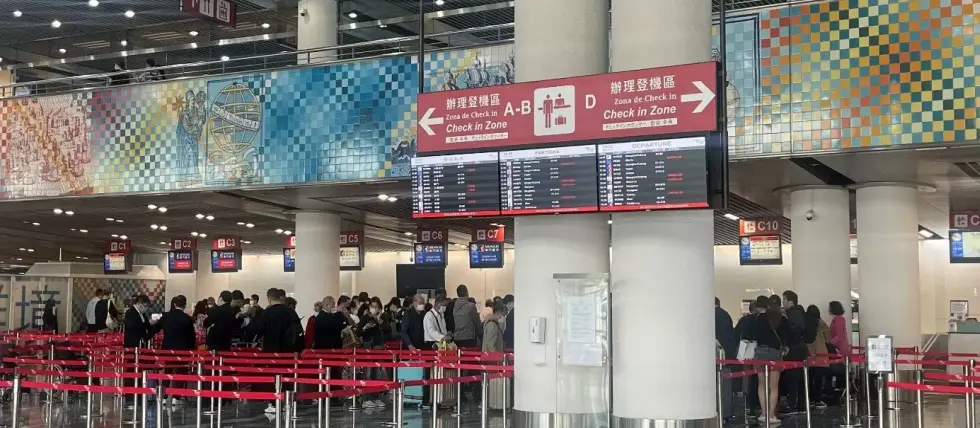Macau Bill Would Ease International Travel to Casinos, But Progress Is Slow
The legislative landscape of Macau's aviation industry could eventually witness a transformation with the potential passing of the Civil Aviation Activities Bill. This bill, which has been a topic of discussion and negotiation within the Legislative Assembly, could mark the end of Air Macau's exclusive control over the city's skies.

The implications of such a change are far-reaching, promising to reshape the dynamics of international travel to and from the Chinese special administrative region (SAR). However, the city's government doesn't seem willing to make progress.
Related: Forbes Keeps Macau at the Top of the Luxury Resort ChartsAt the heart of the debate is the duration of concession periods granted to airlines. The original proposal suggested a 25-year term, but there has been a push to limit this to just 10 years.
Proponents of the shorter term argue that it would provide the SAR with greater flexibility to adapt to the rapidly evolving aviation sector. Despite this contention, the government extended Air Macau's monopoly for an additional three years last November, indicating a cautious approach to deregulation.
Eduardo Buisson Loureiro, an international lawyer and arbitrator at BN Lawyers, has been closely monitoring the bill's progress. Speaking at a France Macau Chamber of Commerce event this week, Loureiro highlighted that the bill had already received general approval from the assembly. However, the specifics of the concession periods remain a sticking point among lawmakers, delaying the bill's final enactment.
More Business News
A Truly Global Destination
The introduction of the Civil Aviation Activities Law promises to liberalize the market, potentially inviting a host of international carriers to establish operations in Macau. This could lead to a diversification of flight routes, with more single-carrier indirect flights connecting Macau to European destinations via Middle Eastern airports.
Moreover, the law could pave the way for direct flights linking Macau with continents such as North America, South America, Australia, and New Zealand. This would significantly enhance the SAR's connectivity with the rest of the world.
The ramifications for Macau's economy could be profound, particularly for its bustling casino and tourism industries. Easier and more varied travel options may attract a larger international audience, boosting revenue and solidifying Macau's position as a global leisure destination.
In addition, the potential benefits of the Civil Aviation Activities Bill extend beyond increased travel options. A more competitive aviation market could lead to lower airfares, benefiting both residents and visitors. Additionally, it could stimulate economic growth by creating new jobs and business opportunities in the aviation sector.
While the exact timeline for the bill's enactment remains uncertain, the ongoing discussions and the government's decision to extend Air Macau's monopoly suggest that authorities are committed to reforming the aviation industry.
RELATED TOPICS: Business
Most Read
Must Read
 Interviews
Interviews
Sweepstakes Casinos: Thriving in an Ever-Changing Industry – Interview with Attorney Stephen C. Piepgrass
Feb 17, 2025 Interviews
Interviews






Review this New Post
Leave a Comment
User Comments
Comments for Macau Bill Would Ease International Travel to Casinos, But Progress Is Slow